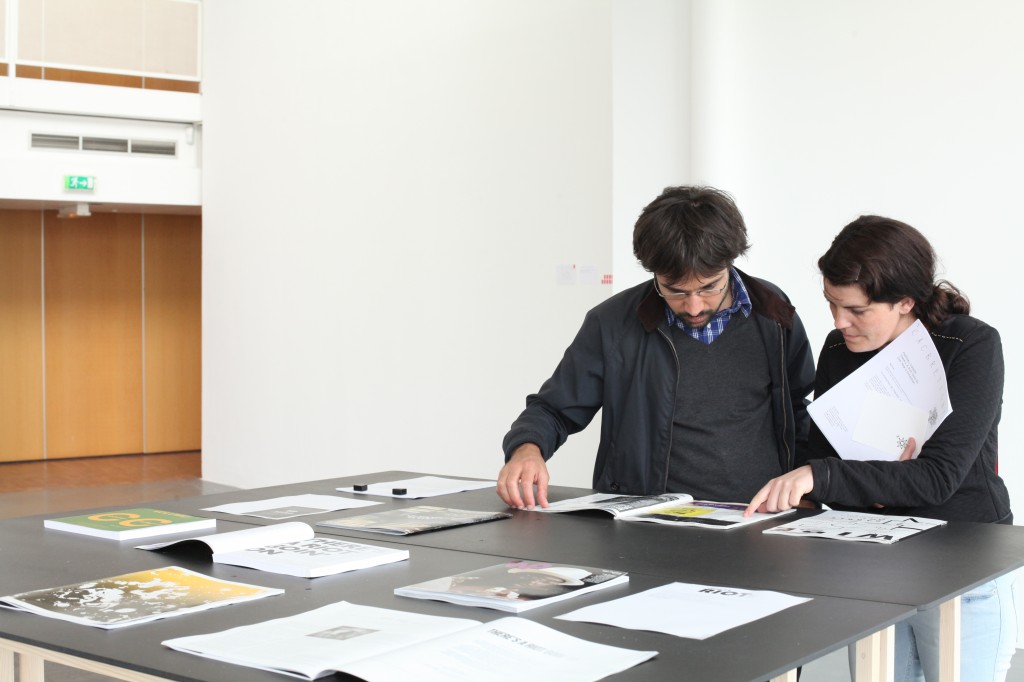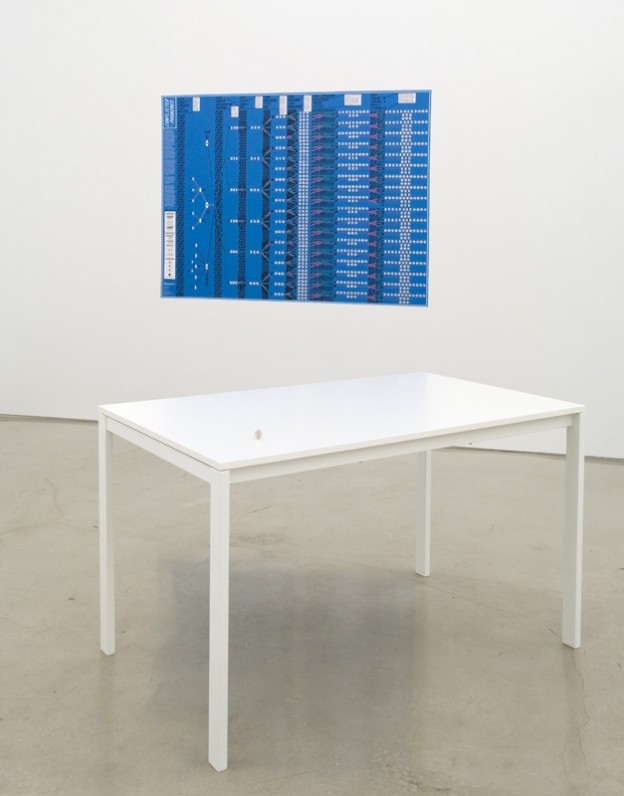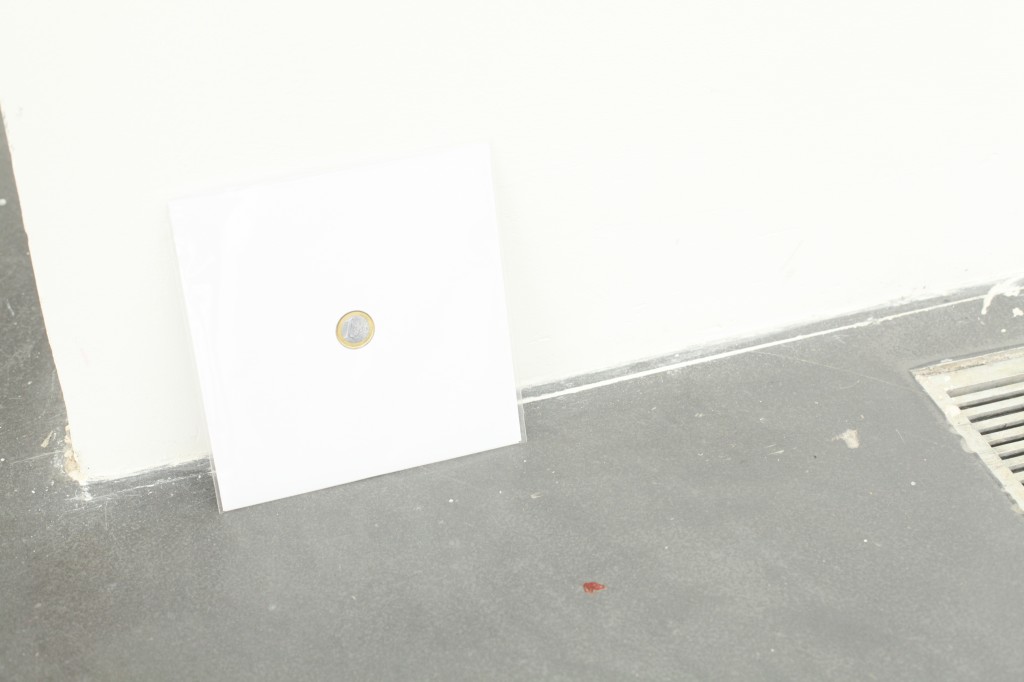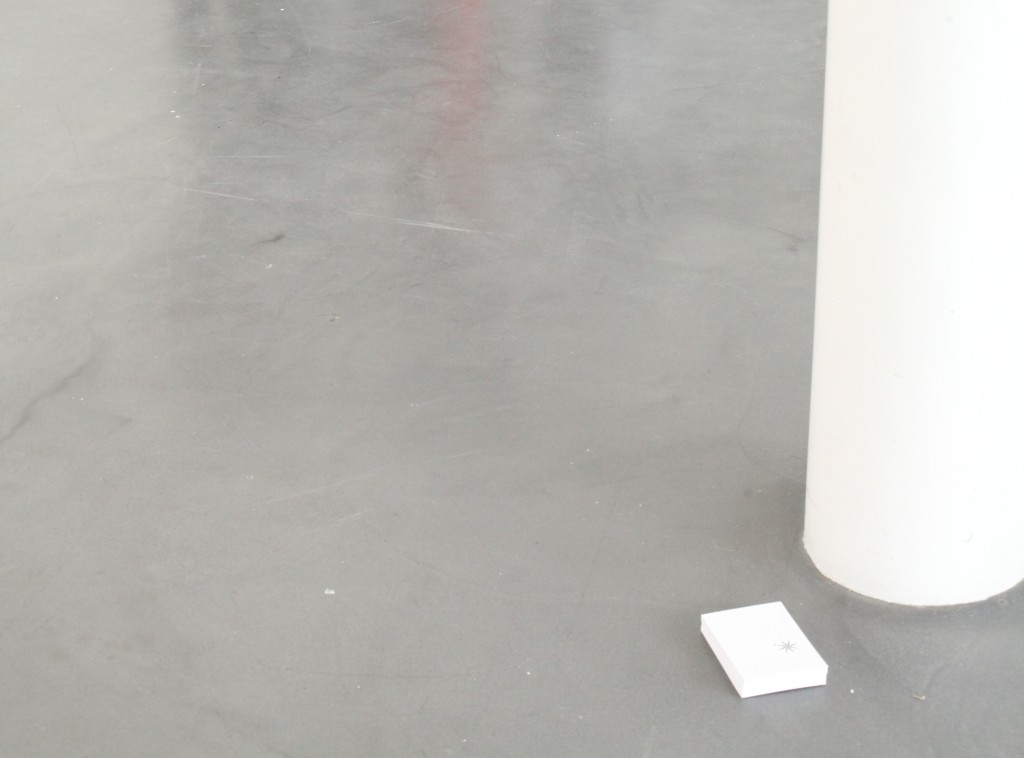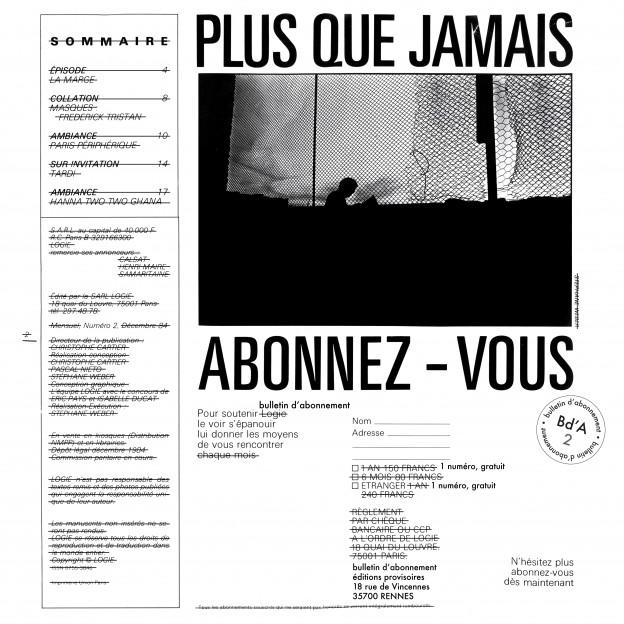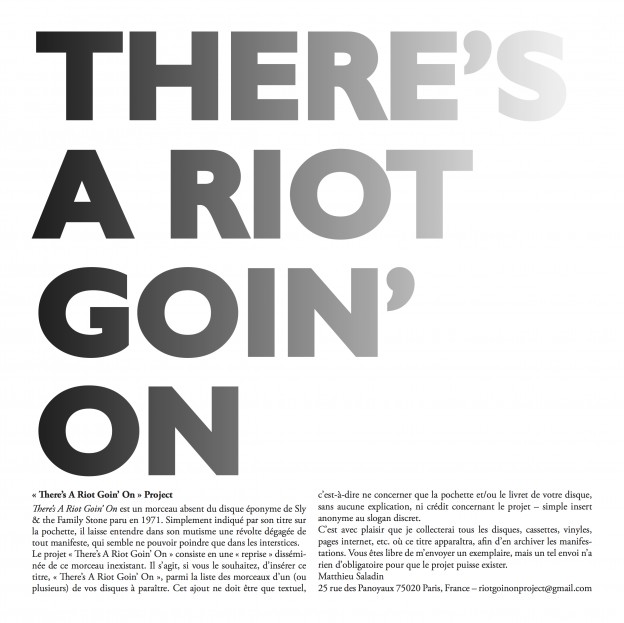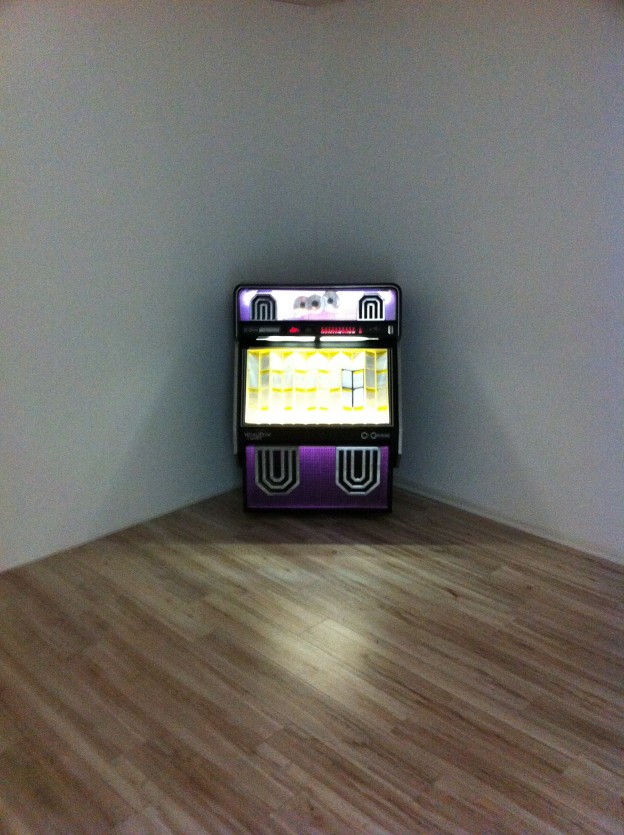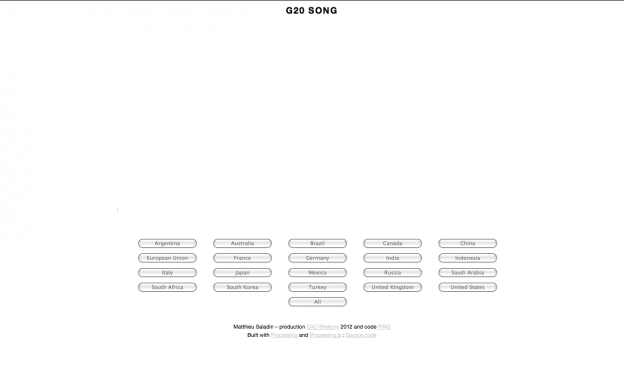2013
There’s a Riot Goin’ On is a missing piece from Sly and the Family Stone’s 1971 eponymous album. Simply mentioned on the album cover, it suggests, by its silence, a riot without a manifesto, seemingly appearing only through interstices.
The project “There’s a Riot Goin’ On” that I am proposing to you today consists in a dispersed “cover version” of this missing track. If you feel like participating, you would have to insert the title “There’s a Riot Goin’ On” in the track list of one (or several) of your forthcoming albums. A plain textual addition, a simple anonymous insert alluding to the discreet slogan. The reference would only concern the album cover and/or booklet, without any other form of explanation, nor credit mentioning the project.
Insert published in Volume !, n° 9.1, 2013 ; Revue et Corrigée, n° 95, March 2013 ; Wire, n° 352, June 2013 ; Metallian, n° 78, July 2013 ; Wax Poetics, n° 56, August 2013 ; Nero, n° 33, fall 2013.
There’s A Riot Goin’ On est un morceau absent du disque éponyme de Sly & the Family Stone paru en 1971. Simplement indiqué par son titre sur la pochette, il laisse entendre dans son mutisme une révolte dégagée de tout manifeste, qui semble ne pouvoir poindre que dans les interstices.
Le projet « There’s A Riot Goin’ On » consiste en une « reprise » disséminée de ce morceau inexistant. Diffusé par emails, inserts dans des magzines de musiques populaires et autres publications, il invite tout musicien qui le souhaite à insérer ce titre, « There’s A Riot Goin’ On », parmi la liste des morceaux d’un (ou plusieurs) de ses disques à paraître. Cet ajout ne doit être que textuel, c’est-à-dire ne concerner que la pochette et/ou le livret du disque, sans aucune explication, ni crédit concernant le projet – simple insert anonyme au slogan discret.
L’insert a été publié dans Volume !, n° 9.1, 2013 ; Revue et Corrigée, n° 95, mars 2013 ; Wire, n° 352, juin 2013 ; Metallian, n° 78, juillet 2013 ; Wax Poetics, n° 56, août 2013 ; Nero, n° 33, automne 2013.
